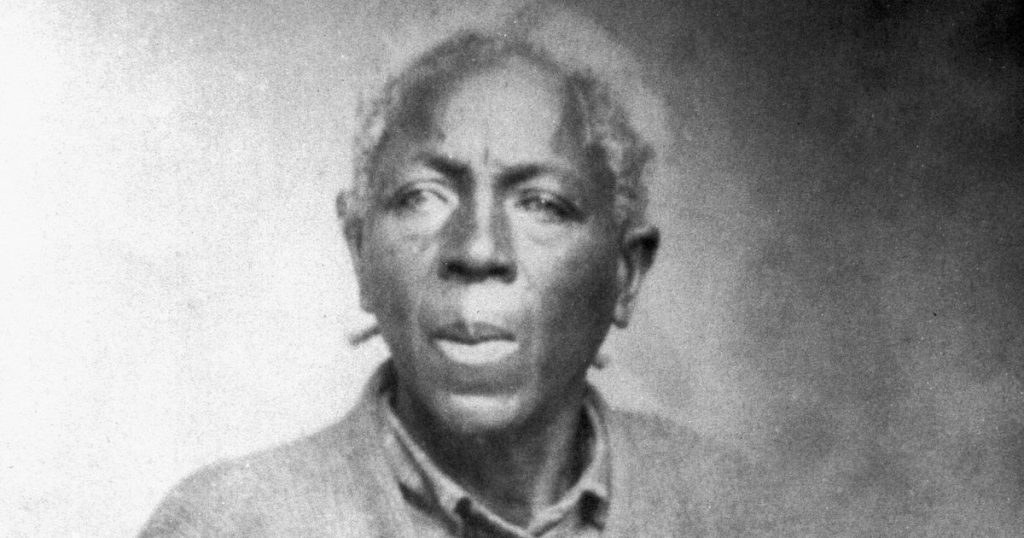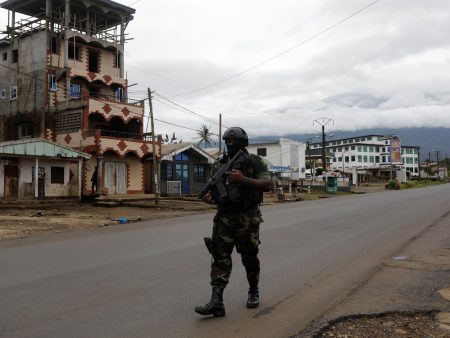Matilda McCrear’s life was a testament to the enduring legacy of slavery and the persistent struggle for justice in the United States. Born Abake in West Africa around 1857, her life took a tragic turn at the tender age of two when she was captured by Dahomey soldiers and sold into slavery. This act ripped her away from her family and homeland, forcing her onto the last known slave ship, the Clotilda, bound for America. The harrowing Middle Passage, a journey notorious for its inhumane conditions, marked the beginning of a life defined by forced labor and the denial of basic human rights. Upon arrival in Alabama, she was renamed Matilda and subjected to the brutal realities of plantation life, witnessing firsthand the cruelty and dehumanization inherent in the system.
The Civil War and subsequent Emancipation Proclamation brought a nominal end to slavery, but the promise of freedom remained elusive for Matilda and countless others. While legally free, she and her family were thrust into a society deeply entrenched in racial prejudice. The Black Codes, vagrancy laws, and convict leasing system effectively perpetuated slavery under a different guise, trapping African Americans in cycles of poverty and exploitation. Matilda’s experience as a sharecropper mirrored the struggles of many formerly enslaved people who were denied access to land ownership, fair wages, and basic human dignity. Despite the legal pronouncements of freedom, the reality for Black Americans was a continued struggle for survival and equality in a society determined to maintain white supremacy.
The Jim Crow era further solidified the racial divide in America. The “separate but equal” doctrine, enshrined by the Plessy v. Ferguson Supreme Court decision, legitimized segregation and discrimination in all aspects of life. From schools and transportation to voting rights and social interactions, African Americans were relegated to second-class status. The insidious nature of Jim Crow laws, coupled with the pervasive threat of violence from white supremacist groups like the Ku Klux Klan, created a climate of fear and oppression for Black communities. Matilda’s life unfolded against this backdrop of systemic racism, highlighting the vast disparity between the ideals of freedom and equality and the lived experiences of African Americans in the decades following emancipation.
Despite the hardships she faced, Matilda displayed remarkable resilience and a fierce determination to maintain her identity. She resisted societal expectations by choosing a common-law partnership instead of marriage and retained her traditional Yoruba hairstyle, a symbolic connection to her African heritage. In 1931, driven by a rumor of compensation for survivors of illegal slave importation, Matilda embarked on a fifteen-mile walk to the Selma court to make her claim. Though her case was dismissed, this act of defiance underscored her unwavering spirit and her pursuit of justice in a system that consistently denied her rights.
Matilda’s story came to light decades later through the research of historian Hannah Durkin, who unearthed a newspaper article detailing her court appearance. This discovery provided a glimpse into the life of one of the last survivors of the transatlantic slave trade, shedding light on the enduring impact of this horrific chapter in history. Matilda’s grandson, John Crear, also played a crucial role in preserving her legacy, sharing family stories and reflecting on the profound impact of her experiences. His involvement in the Civil Rights Movement underscored the ongoing struggle for racial equality, a fight that continued long after Matilda’s passing.
Matilda McCrear’s life, though marked by adversity, serves as a powerful reminder of the human cost of slavery and the enduring struggle for justice. Her story exemplifies the resilience of the human spirit in the face of oppression and highlights the importance of acknowledging and learning from the past. The denial of her claim for compensation in 1931 tragically foreshadowed the ongoing fight for reparations and racial justice that continues to this day. Matilda’s unwavering pursuit of justice, her defiance of societal norms, and her connection to her African heritage serve as an inspiration for future generations. Her story is a testament to the enduring strength and dignity of those who endured the horrors of slavery and fought for a better future.










